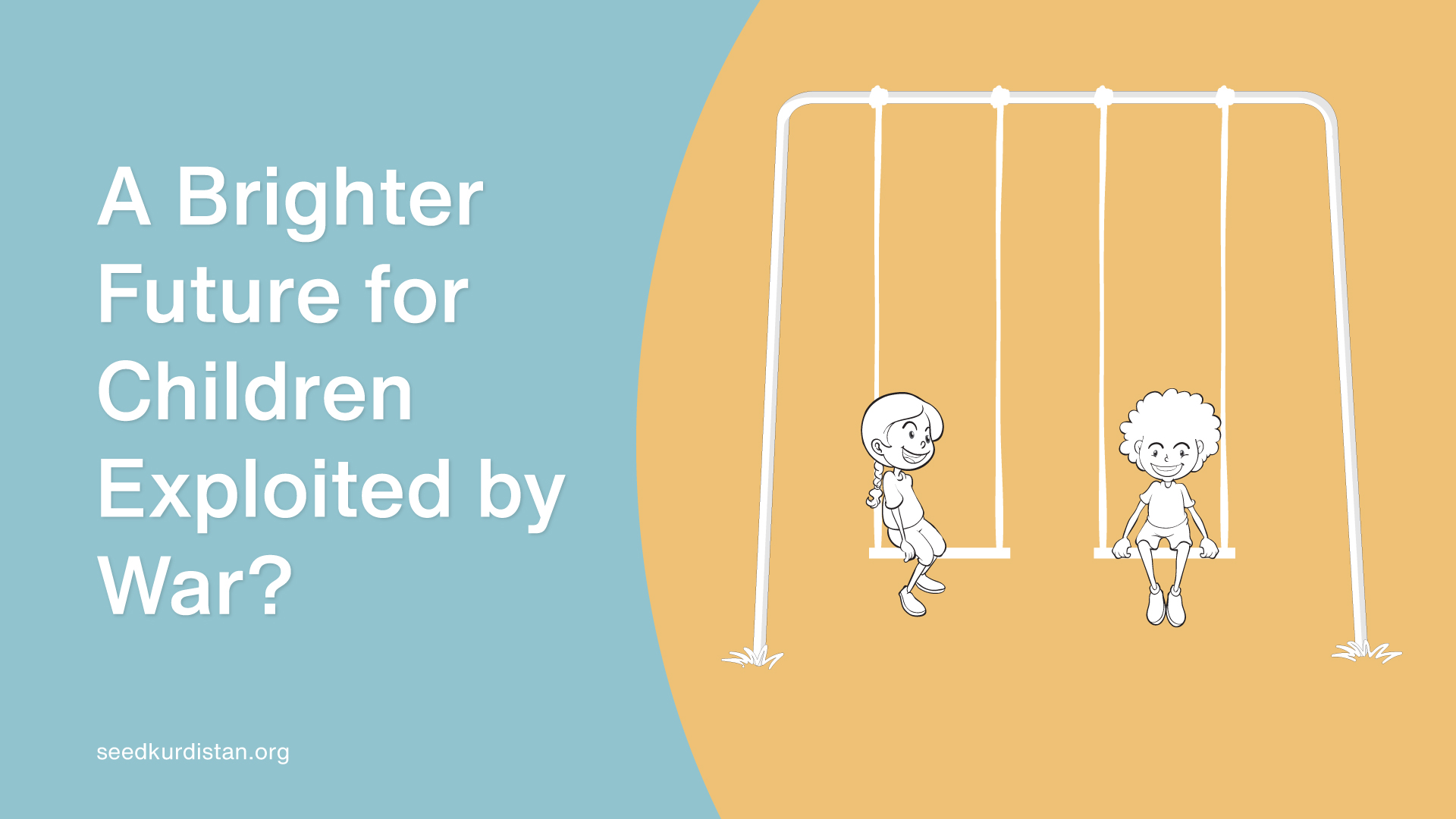
Can We Build a Brighter Future for Children Exploited by War?
The forced recruitment and exploitation of children during conflict is not a new phenomenon, but it is a gravely concerning one. Between 2005 and 2020, an estimated 93,000 children were recruited and used as soldiers around the world1 – although this number is considered conservative.
Often recruited and placed into military training camps as young as four or five years old, these children are incredibly vulnerable, but they are also exceptionally resilient, and with a joint commitment to their protection, recovery, and reintegration, we can ensure that they are able to enjoy the bright future and fulfilling life that they all deserve.
Barzan, Laween, Aziz, and Hidir,* clients of SEED Foundation, were all captured during the height of the ISIS conflict in Iraq. Exposed to horrific violence, tortured, and severely injured during captivity, each young boy was left with complex trauma and poor mental health – in addition to long-term medical needs, lost loved-ones, and destroyed homes.
But each of them also took exceptional risks to escape, still holding out hope, even after surviving unconscionable mistreatment, for a safe return to their families and their former lives.
Children are typically exploited by armed groups under extreme duress – desperate to survive, to protect their family members and communities, or to escape abject poverty. Forced to fight, or used as human shields, these children often witness the most gruesome violence on the front lines. This trauma manifests as post-traumatic stress disorder (PTSD) and can present as anger, anxiety, and depression.
When Barzan, Laween, Aziz, and Hidir reached relative safety in camps for Internally Displaced Persons (IDP) in the Kurdistan Region of Iraq (KRI), they were confronted with the lingering impacts of their time in captivity, including extremely complex mental and physical health needs. Some were fortunate enough to be reunited with parents or siblings, while others still have no knowledge of their families’ whereabouts – a trauma that often worsens their existing conditions.
Despite all of this, each young boy has shown great strength and commitment to their recovery and reintegration – returning to school, rejoining friendship groups and allowing themselves to enjoy what remains of their childhood.
SEED Foundation provides a comprehensive package of integrated, high-quality services to survivors of ISIS captivity – including Aziz, Laween, Hidir, and Barzan. Every case is different, but services begin with a thorough assessment to identify needs and inform the design of a unique care plan that will support each individual on their journey to recovery. In addition to case management to connect children to educational opportunities, livelihoods, and medical care, most support packages also include mental health services – such as cognitive behavioral therapy, art therapy, imaginative role play and emotional regulation – to help them re-engage with other children in a social setting and avoid isolation. And while the heavy emotional burden is often inextricable from the physical scars and injuries, cash assistance for comprehensive medical treatment can help to restore mobility. Psychosocial support activities – building new skills, raising awareness on key issues, recreational activities – help to restore a sense of self they felt they might have lost.
Former child soldiers like Laween, Barzan, Aziz, and Hidir often also require support to replace identification documentation left behind during a frantic escape or confiscated by their captors. To ensure they can register for school and other public services, SEED helps children obtain new documentation and provides any additional legal services required.
For Barzan, the gift of a new prosthetic hand means that he can join his newly made friends to play ping pong.
For Aziz, parenting skills sessions for his older brother, his primary caregiver, help to ensure he gets the care and attention he needs during the numerous surgeries required for his disability.
For Hidir, language and computer courses are setting a foundation for his future employment and helping him rebuild a sense of community with his peers.
For Laween, mental health services have restored his confidence after the loss of his leg, and encouraged him to start looking for work.
SEED Foundation serves these children – and many others – working with other actors to meet their needs. However, available resources are not enough to serve every child in need. Working with children that were repeatedly exposed to violence requires a complex, integrated approach between government and NGOs. Their successful recovery and reintegration demands long-term commitment and international cooperation. But the investment is worth it.
Aziz, Laween, Barzan and Hidir have as much to offer their community as anyone. Their commitment to learning new skills, making friends, and returning to school is a testament to their bravery, their love for their home, and their hope for the future.
* Pseudonyms have been used to protect the confidentiality and safety of SEED’s clients.
1 UNICEF, Children Recruited by Armed Forces or Armed Groups, 2021
